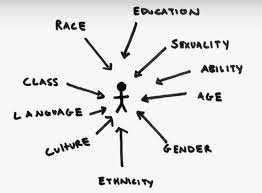Petsko, C.D., Rosette, A.S. &
Bodenhausen, C.V. (2022)
Preprint
Journal of Personality & Social Psychology
Abstract
A growing body of scholarship documents the intersectional nature of social stereotyping, with stereotype content being shaped by a target person’s multiple social identities. However, conflicting findings in this literature highlight the need for a broader theoretical integration. For example, although there are contexts in which perceivers stereotype gay Black men and heterosexual Black men in very different ways, so too are there contexts in which perceivers stereotype these men in very similar ways. We develop and test an explanation for contradictory findings of this sort. In particular, we argue that perceivers have a repertoire of lenses in their minds—identity-specific schemas for categorizing others—and that characteristics of the perceiver and the social context determine which one of these lenses will be used to organize social perception. Perceivers who are using the lens of race, for example, are expected to attend to targets’ racial identities so strongly that they barely attend, in these moments, to targets’ other identities (e.g., their sexual orientations). Across six experiments, we show (1) that perceivers tend to use just one lens at a time when thinking about others, (2) that the lenses perceivers use can be singular and simplistic (e.g., the lens of gender by itself) or intersectional and complex (e.g., a race-by-gender lens, specifically), and (3) that different lenses can prescribe categorically distinct sets of stereotypes that perceivers use as frameworks for thinking about others. This lens-based account can resolve apparent contradictions in the literature on intersectional stereotyping, and it can likewise be used to generate novel hypotheses.
Lens Socialization and Acquisition
We have argued that perceivers use lenses primarily for epistemic purposes. Without lenses, the social world is perceptually ambiguous. With lenses, the social world is made perceptually clear. But how do people acquire lenses in the first place? And why are some lenses more frequently employed within a given culture than others? Reasonable answers to these questions come from developmental intergroup theory (Bigler & Liben, 2006, 2007). According to this perspective, children are motivated to understand their social worlds, and as a result, they actively seek to determine which bases for classifying people are important. One way in which children learn which bases of classification—or in our parlance, which lenses—are important is through their socialization experiences (Bigler et al., 2001; Gelman & Heyman, 1999). For example, educators in the U.S. often use language that explicitly references students’ gender groups (e.g., as when teachers say “good morning, boys and girls”), which reinforces children’s belief that the lens of gender is relevant toward the end of understanding who’s who (Bem, 1983). Another way in which people acquire lenses is through interaction with norms, laws, and institutions that, even if not explicitly referencing group divisions, nevertheless suggest that certain group divisions matter more than others (Allport, 1954; Bigler & Liben, 2007). For example, most neighborhoods in the United States are heavily segregated according to race and social class (e.g., Lichter et al., 2015; 2017). Such de facto segregation sends the message to children (and adults) that race and social class—and perhaps even their intersection—are relevant lenses for the purposes of understanding and making predictions about other people (e.g., Bonam et al., 2017). These processes, a broad mixture of socialization experiences and inductive reasoning about which group distinctions matter, are thought to give rise to lens acquisition.
